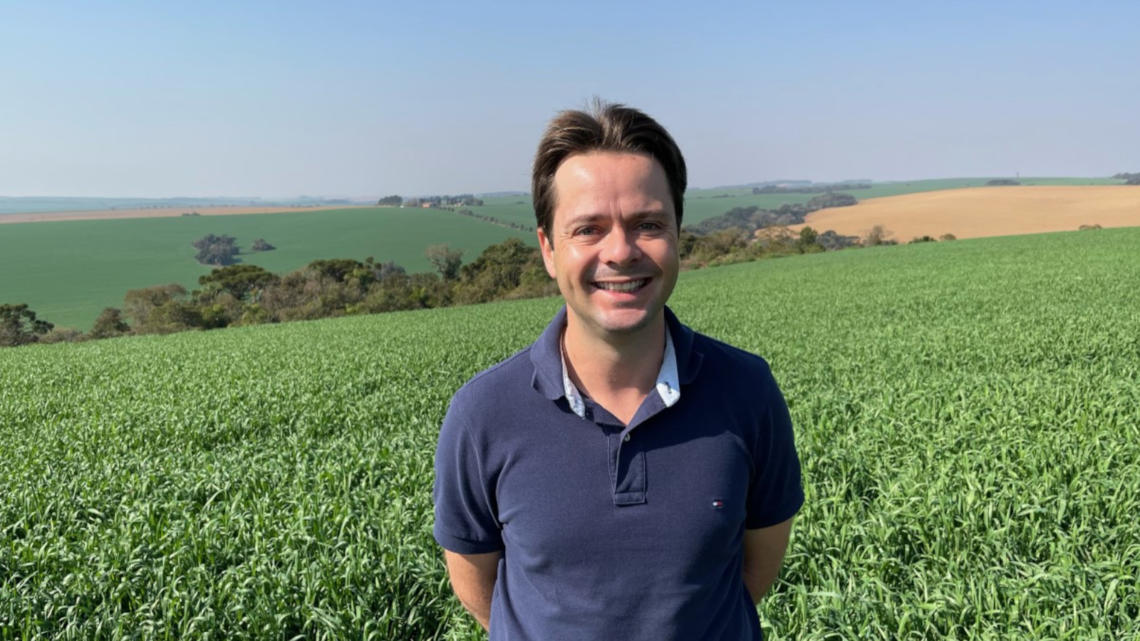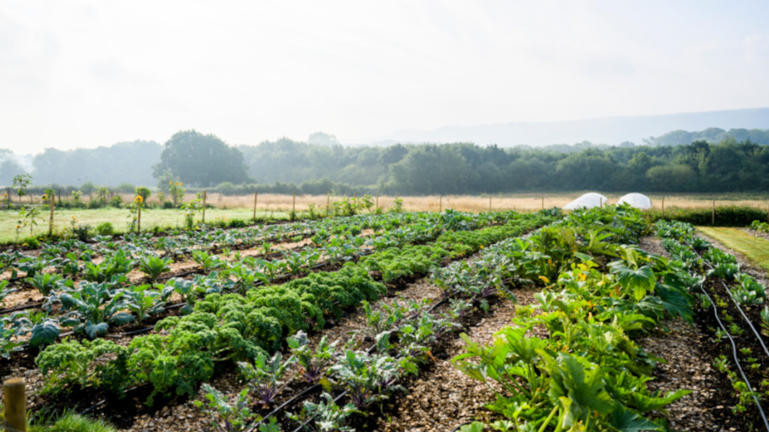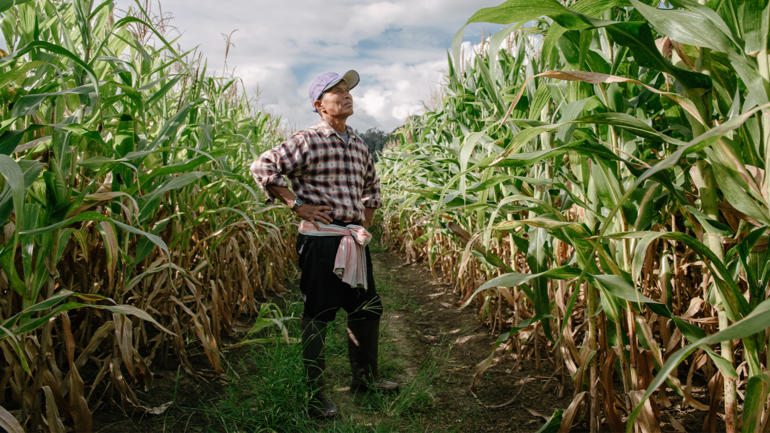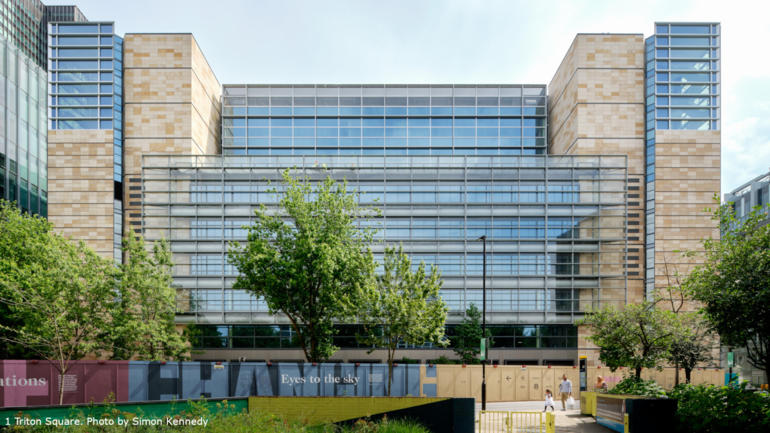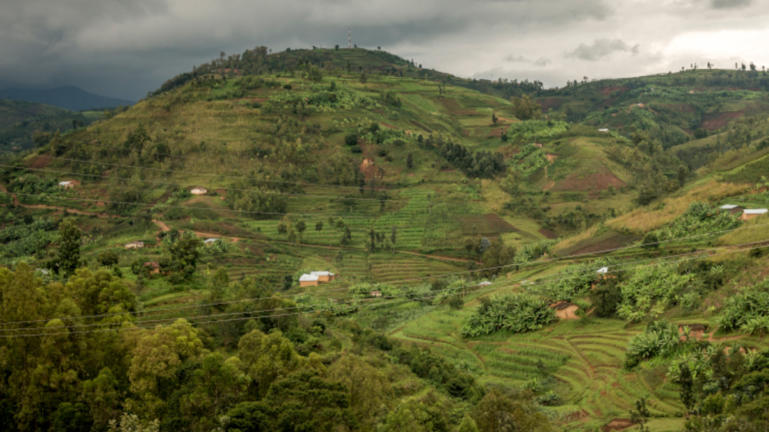Twelve years ago, I returned home to Brazil after a year experiencing cutting edge precision agriculture on a farm in North Dakota, USA. I had been inspired by their GPS guidance systems for tractors, sensor arrays, and automatic control systems, all of which resulted in significantly more efficient farming. With my agronomic studies recently completed, I rolled up my sleeves and set to work applying what I had learnt to our family farm, in the uneven hills of Ponta Grossa, Brazil.
At that time, precision farming was prohibitively expensive in Brazil, with few banks willing to lend for this unfamiliar technology. In the end, it was my forward-thinking father, a doctor with a lifelong passion for farming, who provided the support we needed to start our transition to precise, sustainable agriculture.
The path to this new farming system was far from smooth. Erosion is a big issue in Ponta Grossa, damaging the soil fertility critical to food production. To fight this topsoil erosion, we introduced sustainable practices like cover cropping, where crops are planted between harvests to protect the soil, and crop rotation, which both complemented the no-till practices we had already been using for thirty years.
And thanks to our family’s investment in new technologies, these practices were possible with world-class precision. After years of experimentation, our commitment to sustainability began to pay off economically and ecologically, and today we enjoy healthy returns growing from healthy soil.
While the transition to precise, more sustainable methods was uncommon in 2009, I’m pleased to see an increasing number of opportunities making this type of farming accessible to farmers across Brazil. Recently, many new partnership initiatives have emerged to financially support the adoption of the same kind of sustainable practices we started to use in Ponta Grossa over a decade ago.
One example is the Bayer Carbon Initiative which financially rewards farmers for using practices that protect soil. This extra income is an important option for any farmer considering a sustainable transition, because it can sometimes take five years for these new practices to become profitable.
Payments for soil care are a very positive development, because as long as the large upfront costs can be covered, an investment in innovative soil care practices will pay back many times over in a farmer’s lifetime. While my father and I had no choice but to use our own funds in 2009, cost-sharing initiatives like Bayer’s now mean that my story can become the story of thousands of Brazilian farmers.
However, these initiatives are not without their challenges. A particular concern for farmers arises when providing companies with access to our operational data. Farmers work very hard to collect field data, which is critical to our livelihoods. It should always be made clear to farmers how companies will use and store this data. Above all, these sensitive issues require relationships built on close collaboration and trust.
Another promising model for farmers is to form diverse partnerships with agribusinesses. For example, we recently set up a composting business alongside our farming activities. Food companies bring their organic waste to us, and we help them compost it, certify their waste has been sustainably managed and apply it to our land. This is just one example of how connections with business can provide ‘win-win’ sustainability outcomes for farmers – healthier soil and margins.
But it isn't always so simple. Many companies expect us to compost for free, failing to appreciate the significant investment we have had to make into the technologies that make composting possible. While our farm does benefit through long term cost savings, the venture is not economically sustainable if companies are not willing to pay.
I see this as a mindset problem – companies, run by executives who may rarely visit farms, view the compost as a waste product, instead of a valuable investment into reaching their own sustainability goals.
Despite these challenges, I am excited for the range of new partnerships allowing farmers to earn a living from adopting sustainable practices. Crucially, as I explained earlier this year at the Producers’ Dialogue for the World Business Council for Sustainable Development’s Liaison Delegate Meeting, organized with Wageningen University & Research, the CGIAR Research Program on Climate Change, Agriculture and Food Security (CCAFS) and the Just Rural Transition, the private sector must respect the hard work and autonomy of farmers for these partnerships to work. In particular, I would recommend that partnering companies focus on three areas.
First, incentives and payments for ecosystems services must be supported by robust data governance and transparent practice. It is crucial that each farmer can choose the information that they share.
Second, private sector partners should change their mindset when working with producers. The executives who make decisions affecting farmers are often many miles away from the field. I would invite anybody making decisions about food production to 'get mud on their shoes’, experiencing first-hand the decisions that producers have to make every day.
Third, when engaging in these partnerships, companies must realize that each biome, municipality, and community requires tailored solutions. There is no silver bullet or blueprint solution for companies to follow, and this means there is no substitute or shortcut to hearing from farmers firsthand.
This was why I was so excited to talk at the Producers’ Dialogue in April 2021. The virtual session connected executive offices to farmhouses for a direct, frank and productive conversation on how the private sector and producers can work better together.
We all dream of leaving the world in a better condition for our children. But only by engaging with one another respectfully and rethinking what we value and pay for, can we truly make our food system sustainable.
This blog was published in partnership with Wageningen University & Research, the CGIAR Research Program on Climate Change, Agriculture and Food Security (CCAFS) and Just Rural Transition.
Related articles:
Voices from the Field series: Tyler Drewes
Voices from the Field series: Nono Sekhoto
WBCSD is leading the private sector engagement in preparing for the UN Food Systems Summit to accelerate the transformation to equitable, net-zero and nature-positive food systems. Learn more here.

